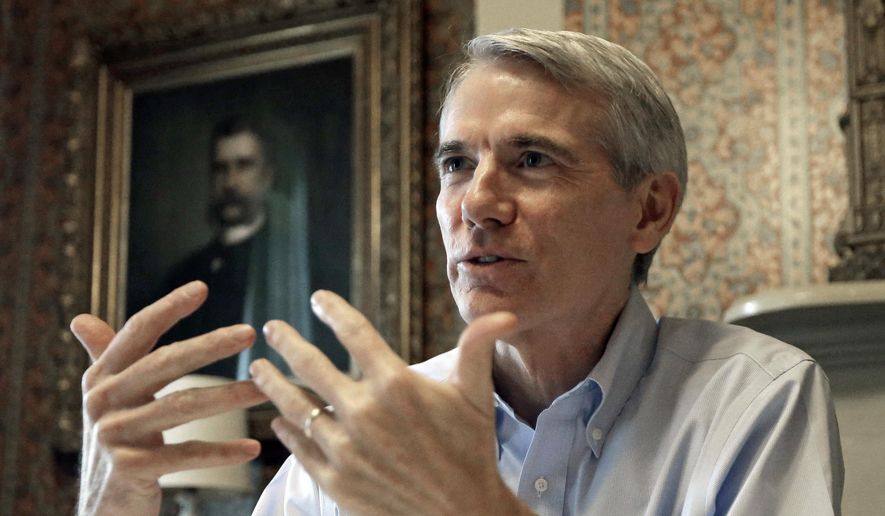WASHINGTON (AP) — A bipartisan framework emerged in the Senate Wednesday to overhaul the taxes paid by U.S. firms on foreign profits while potentially providing much-needed funding to repair the nation’s roads and bridges.
Many of the details need to be worked out, and huge hurdles remain. But if successful, it would be the kind of bipartisan compromise on taxes that has long eluded Republicans and Democrats in Washington.
Democratic Sen. Chuck Schumer of New York and Republican Sen. Rob Portman of Ohio unveiled the 81-page framework Wednesday.
It would require U.S.-based corporations to pay a one-time tax on up to $2 trillion in foreign profits that U.S. firms have parked overseas. The tax rate has not been determined, but it would be considerably less than the 35 percent corporate income tax rate currently in effect, according to the plan.
The tax would generate money for infrastructure improvements — how much would depend on the tax rate. Funding for highways is scheduled to run out at the end of the month.
Going forward, the plan would allow U.S. corporations to exempt more of their foreign profits from U.S. taxes.
The plan would also create a special tax rate for business profits from intellectual property, such as patents, which many U.S. firms assign to subsidiaries in low-tax countries as a way to lower their U.S. taxes. The goal is to encourage these companies to assign patents to U.S. entities, making the profits they generate subject to U.S. taxes.
Important details have yet to be worked out, such as the special tax rate and the legal definition of which profits would qualify. If the plan moves forward, these details would be the subject of intense lobbying and debate in Washington.
There is little chance Congress will re-write the international tax system in just a few weeks — finishing it this year would be an aggressive timeline. But the proposal could provide a bipartisan framework that lawmakers can eventually use to tackle two nagging issues — a tax system that puts U.S. businesses at a disadvantage, and an infrastructure system that badly needs new revenue.
“Our international tax system is upside down and inside out. It creates incentives to send jobs and stash profits overseas, rather than creating jobs and economic growth here in the United States,” Schumer said in a statement. “These proposals would right the ship, provide a potential funding source for transportation reauthorization, and allow the United States to compete on a level playing field.”
Schumer is the No. 3 Democrat in the Senate and is expected to take over as the Democratic leader after Minority Leader Harry Reid, D-Nev., retires at the end of 2016.
The Senate Finance Committee has been working since the start of the year to draft proposals to overhaul and simplify the nation’s complicated tax system. The committee was split into five working groups to tackle various areas of the tax code. Portman and Schumer headed the group working on international taxes.
“This bipartisan framework provides an opportunity for both sides of the aisle to continue to work together to design policies that will once again allow U.S. businesses and their workers the tools they need to compete and win on a level playing field with their international competitors,” Portman said. “This report is just the beginning of a process, not the end.”
At 35 percent, the United States has the highest corporate tax rate in the industrialized world. However, the tax code is filled with exemptions, credits and deductions that enable many companies to pay taxes at a far lower rate.
The United States is unique among most developed nations because it taxes corporate profits, even if they are earned in other countries. However, there is a big caveat: The profits aren’t taxed by the U.S. unless they are brought back to the U.S.
The system has encouraged some U.S. firms to stockpile profits overseas, investing them in foreign subsidiaries rather than investing them in the U.S. or distributing them to shareholders in the form of dividends.
Portman and Schumer said they borrowed ideas from both President Barack Obama and former House Ways and Means Committee Chairman Dave Camp, a Michigan Republican who did not seek re-election in 2014.




Please read our comment policy before commenting.